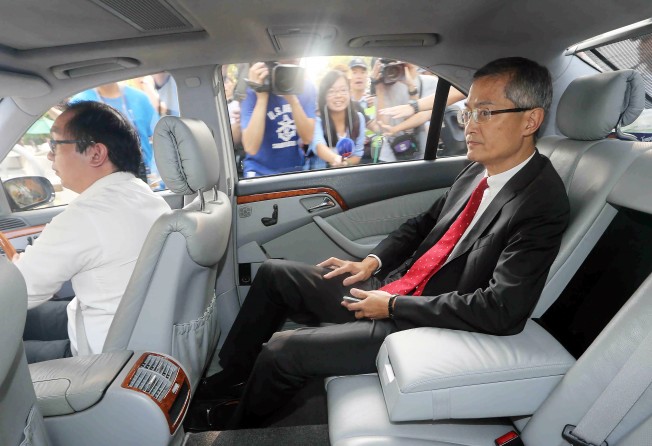University of Hong Kong council member accuses student of 'dishonest means' in Johannes Chan decision uproar

A University of Hong Kong council member has slammed a student representative who sits on the institution’s governing body for disclosing discussion details of a controversial personnel decision.
In a statement issued late Thursday, Dr Lo Chung-mau also said some had been “exaggerating matters” by attacking him online. He said such actions would “further split HKU” and “split Hong Kong.”
Lo, a renowned liver surgeon, was quoted today by RTHK as saying he had received 2,000 emails since details of Tuesday's council meeting were exposed. He said some messages contained offensive language.
In his statement, Lo referred to a student member on the council breaching a confidentially agreement by “one-sidedly making statements on what was discussed by council members” during a recent meeting to discuss whether to appoint former university law school dean Johannes Chan Man-mun to a key managerial post.
Lo did not identify the student representative by name.
“Integrity is the cornerstone of character,” Lo’s statement read. “Using dishonest means to achieve goals must not be tolerated.”
He added that he hoped the student could reflect on what he did.
After the closed-door discussions on Tuesday night, student representative Billy Fung Jing-en angrily abandoned confidentiality rules and revealed the reasons pro-government members had given for rejecting Professor Chan’s candidacy for the post.
According to Fung, one reason raised by Lo was that Chan failed to “show sympathy” to him when he collapsed in July when students stormed a meeting. Reasons from other members included Chan's not having a PhD, Fung said.
Fung was immediately criticised by several pro-establishment figures, including those mentioned in his revelations, with some calling him “a liar” and “lacking in integrity”.
Meanwhile, Legislative Council president Jasper Tsang Yok-sing, a university alumnus, said he felt sad about what had transpired.
The handling of the incident was undesirable and would hopefully not be repeated, the veteran lawmaker said.
Pro-Beijing newspaper Wen Wei Po first revealed last year that Chan was the recommended to the post of pro-vice-chancellor, and since then the appointment – which was supposed to be confidential until it was confirmed – had been heavily debated in the public sphere.
Tsang yesterday defended the newspaper’s move, saying “it was hard to stop media from reporting”.
Even if Chan were approved by the council, Tsang expected it would be very hard for him to be effective given his clear pro-democracy bent at odds with the central government.
“Some staff [in the university] might question whether [Chan’s decisions] not to promote them are related to their patriotic stance,” Tsang said. “These excuses could easily be made and would make Chan’s job very difficult.”
In the face of criticism from several pro-establishment figures, including those mentioned in his revelations, Fung yesterday said on a Commercial Radio programme that he had no other goals to achieve than ensuring students’ right to know.
“I don’t benefit from this,” said Fung. “This is different from some executive council members who leaked information for their own interests.”
Meanwhile, university president Peter Mathieson said in an email to staff and students yesterday that academic freedom is still cherished and protected at the institution.
“Academic staff are encouraged to pursue whatever subjects their interests dictate, irrespective of how controversial they may be,” said Mathieson in the email.
Eighteen professional groups including members such as lawyers, doctors, artists, teachers and social workers, also issued a joint statement yesterday criticising the council members’ reasons, as revealed by Fung, as “nonsensical” and “baseless”. The groups also said they sensed Beijing intervention in the episode and that they “greatly appreciate” Fung’s moral courage and sense of responsibility.
Pro-democracy think tank Hong Kong 2020 also issued a statement calling the council’s failure to provide a credible explanation for its decision “both shameful and shameless”.
“The council is no longer worthy of the trust or respect of the Hong Kong community,” the statement read.